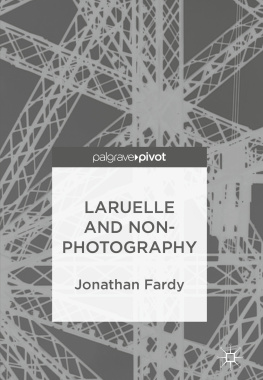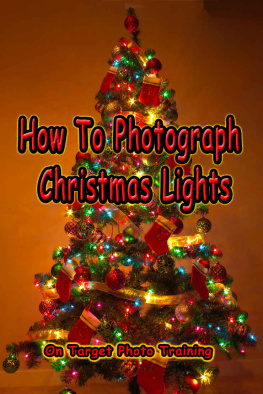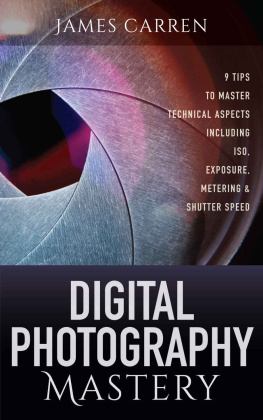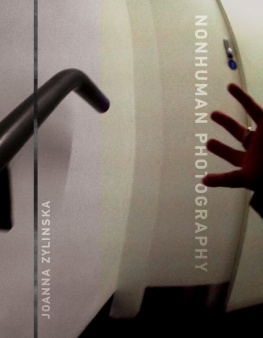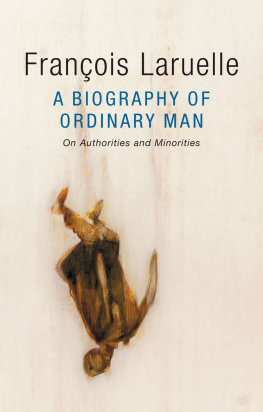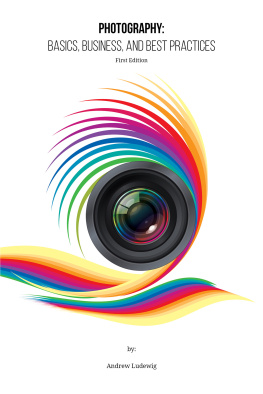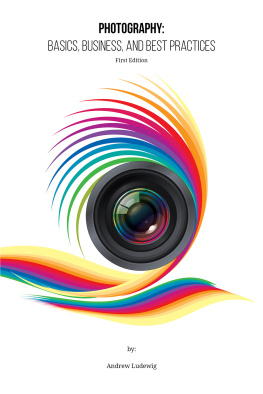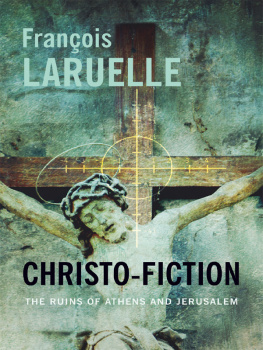1. Introduction
Key Ideas
The aim of this introductory chapter is to outline the key ideas for understanding Laruelles non-philosophical project. The most important terms for any introduction to Laruelles work are: the Real , the Principle of Sufficient Philosophy , and the Philosophical Decision . We will explore each before turning to the subject of non-photography and its core terms.
Real , Principle of Sufficient Philosophy , and the Philosophical Decision are consistently capitalized throughout Laruelles texts because they name what Laruelle considers to be the structural invariants of standard philosophy. Standard philosophy, argues Laruelle, is structured by the way it decides on the nature of the Real understood as the totality of reality at its most fundamental and essential. Standard philosophy presupposes that it is epistemologically sufficient to grasp the Real . It is this presupposition that Laruelle names the Principle of Sufficient Philosophy. Non-philosophy is founded on a different axiom: the Real cannot be grasped by philosophy. The Reals immanent totality exceeds any decision upon the Real that philosophy could render. To be clear: it is not that Laruelle holds that no knowledge of the Real is possible. We can, and do, have partial or local knowledge of the Real through science . But absolute philosophical knowledge of the essence of the Real is impossible according to Laruelle. Philosophy is immanent to the Real and is conditioned by it. Philosophy cannot decide the Real . The Real is instead decisive for philosophy. It is the latter perspective that distinguishes non-philosophy (or non-standard philosophy) from philosophy (or standard philosophy). We will now investigate each of these ideas in more detail before concluding with an introduction to non-photography .
Real
The Real is the center and specter of Laruelles work. It is central as it is cited throughout all of his work. Yet it is a specter because it is elusive. Put simply: the Real is all that is. It is the immanent totality of which thought itself forms a part. Laruelle argues that standard philosophy is marked by its insistence that it is possible to grasp the Real. It accomplishes this (or fails to) by making a decision concerning what the Real really is. Every standard philosophy renders a decision on the Real. The Real for Plato, for example, was the world of the Forms: the world of eternal perfection beyond space and time. The Real for Heidegger was that of Being: the brute, precognitive, experience of sheer existence. The Real for Foucault was discourse: the genealogy of words and practices that shape and determine the conditions of historical possibility. The Real for Derrida was that of differance : the differential space that conditions the play of differences within signifying practices. The Real for Laruelle is all that is and which is immanent to our existence. But the Real for Laruelle cannot be philosophically decided. Rather the Real is that which is decisive for thought of any kind.
Principle of Sufficient Philosophy and Philosophical Decision
Standard philosophies presuppose that they are sufficient to grasp and decide the Real . It is this presupposition of standard philosophy that Laruelle names: Principle of Sufficient Philosophy. Laruelle axiomatically rejects this principle. No thought is sufficient to grasp the Real as a totality. Non-philosophy is thus founded on the axiomatic rejection of the Principle of Sufficient Philosophy and the decisional structure of standard philosophy that issues from it: the Philosophical Decision.
How Non-Philosophy Differs from Philosophy
Non-philosophy (or non-standard philosophy) differs from philosophy in that the former refuses to take a decision on the Real on the grounds that it is not sufficient to grasp and decide it. But this does not consign Laruelles project to silence. Rather it enables him to draw on a wide array of cultural and philosophical materials that are combined and reconfigured in novel ways. Laruelle subtracts the content concerning the Real from his chosen materials. It should be emphasized that the project of non-philosophy is not epistemically hollow. Laruelle accepts that local knowledge of the Real is possible through science . What he does not accept is that any practice of thought is sufficient to grasp the totality of the Real .
Non-Photography
One of the raw materials that Laruelle draws on is photography. His work seeks to de-philosophize photography in order to fashion a form of thought he calls non-photography. Laruelle sees both standard philosophy and standard conceptions of photography as structural parallels. Both philosophy and photography have shared a similar fate in discourse. Both have been linked to standard philosophical tropes: truth, light, reason, illumination, and the Real . It is true that photography theorists for years have countered this conception by calling attention to the manipulation and mediation of the Real engendered by photographic practice. But neither the nave view of photography as an unmediated reflection of reality nor the view of photography as a form of manipulation and mediation escape the topos of the Real . Philosophy and photography enable a certain forgetting of the frame they impose on the Real . Laruelle sees photography and philosophy as different forms of media that frame and force a certain imposition on the Real . But their respective decisions always fail. The visual always exceeds the boundaries of the frame of photography as the immanent totality of the Real escapes that of philosophy.
Non-philosophy and non-photography begin by acknowledging the insufficiencies of photography, philosophy, and standard philosophies of photography. Photographic and philosophical frames are partial and insufficient to decide the Real . What appears in their respective frames is immanent to the apparatuses of philosophical and photographic vision. As Laruelle writes in The Concept of Non-Photography :
Photography is in no way a double, a specular image of the World , obtained by division or decision of the latter; a copy, and a bad one, of an original. [] The photo is not a degradation of the World , but a process which is parallel to it and is played out elsewhere [hence photography is] unlimited by right rather than merely open. (2425)
Laruelles effort to free thought from the sovereignty of the Philosophical Decision parallels his effort to free photography from its theoretical attachment to the Real . Laruelles aim is to open photography and philosophy within an expanded field that is neither quite photography nor philosophy in the traditional sense of those terms (see Krauss ). Photography (like philosophy) is rendered unlimited once its suture to the Real is severed.
Problem
There is a central problem that animates Laruelles project of non-photography . How can photography be thought without philosophizing it? Is non-philosophy hopelessly trapped in a vicious circle that tries to escape philosophy by theory? Is such a thought not already destined to reproduce the Philosophical Decision in the very decision not to decide? This book will try to answer these questions. But before we condemn the apparent circularity of a non-philosophical approach to photography, we need to understand the circle we are in. This immanent circle is marked at two points by the concepts art and science . At its historical advent in the mid-nineteenth century, photography was torn between those who saw it as a scientific tool for seeing the world objectively and those who saw it as a medium for creative, subjective expression. The art/ science split has been insistently reiterated ever since in the continuous and contentious debate as to whether photography is principally subjective or objective in nature.

